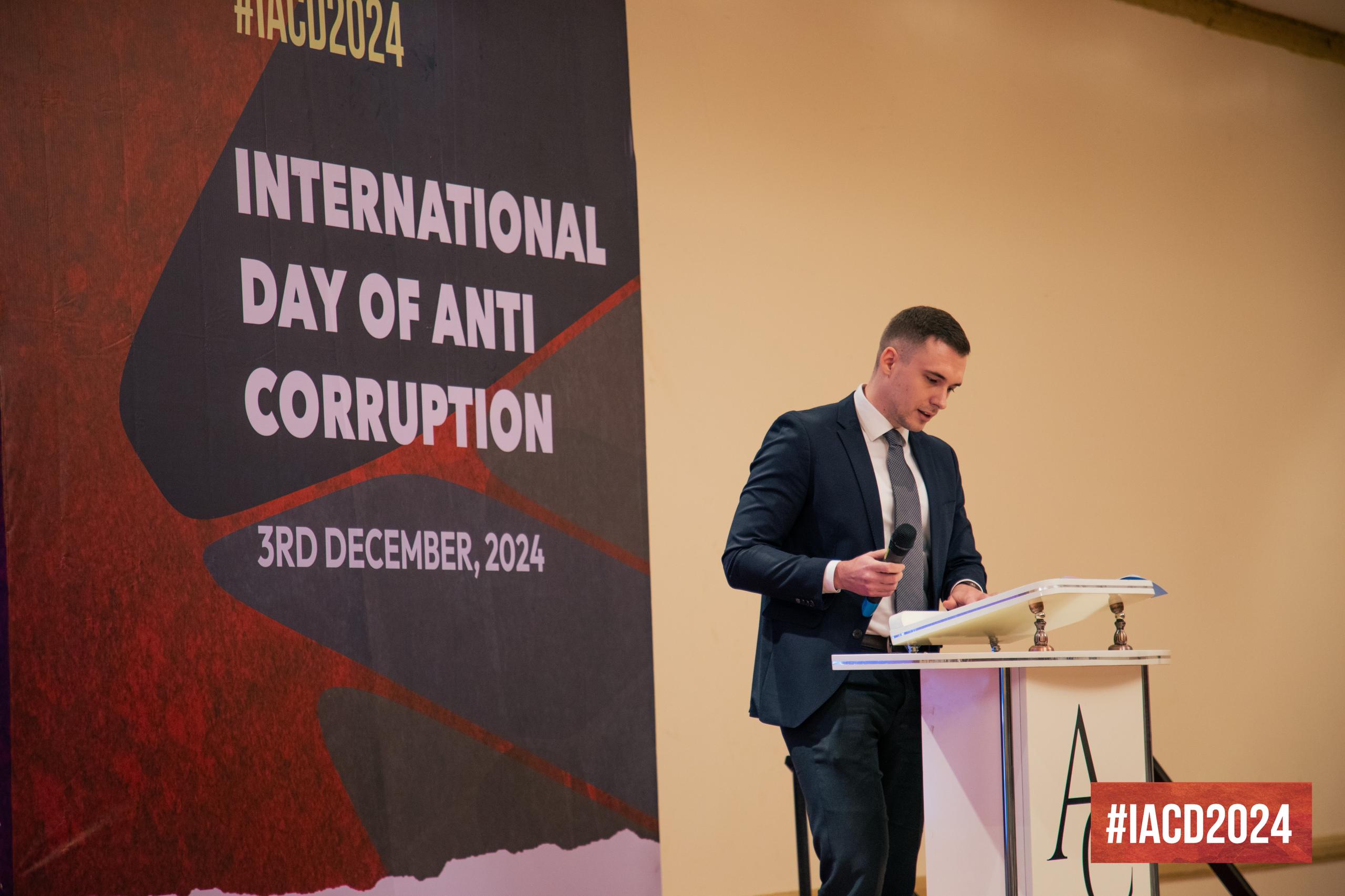NEWS
December 17, 2024

IN BRIEF
It is my great pleasure to welcome you to today’s meeting on procurement fraud, on behalf of Mr. Cheikh Toure, UNODC Country Representative in Nigeria, who regrets being unable to attend due to overlapping commitments. This meeting, organized at the margins of the International Anti-Corruption Day 2024, offers a crucial opportunity to raise awareness about procurement fraud, commit to integrity in public procurement, and agree on relevant actions. Corruption in public procurement has a profoundly negative impact on government spending, [...]
SHARE
It is my great pleasure to welcome you to today’s meeting on procurement fraud, on behalf of Mr. Cheikh Toure, UNODC Country Representative in Nigeria, who regrets being unable to attend due to overlapping commitments.
This meeting, organized at the margins of the International Anti-Corruption Day 2024, offers a crucial opportunity to raise awareness about procurement fraud, commit to integrity in public procurement, and agree on relevant actions.
Corruption in public procurement has a profoundly negative impact on government spending, undermining market competition and impeding economic development. It leads to governments paying inflated prices, often resulting in substandard goods and services, a lack of accountability, and erosion of public trust.
A procurement system lacking transparency, competition and integrity is a fertile ground for corrupt behaviour, and while implementing a public procurement system based on these principles can be challenging, it is essential and in the interest of any government and its citizens.
The United Nations Convention against Corruption (UNCAC) provides us with the necessary guiding framework. To ensure legitimate procurement procedures and adequate public records, Article 9 of UNCAC requires the establishment of a sound procurement system; transparency in procurement; objective decision-making in procurement; domestic review (or bid challenge) systems; integrity of public officials; and soundness of public records and finance.
Overall, the UNCAC allows a high degree of flexibility in connection with appropriate systems of procurement as long as there is adherence to the principles of transparency, competition, and objective criteria in decision-making.
A good procurement system distinguishes itself, firstly, by incorporating these principles effectively and, secondly, by ensuring that these principles are applied throughout the entire procurement process.
While Nigeria has taken some steps in complying with these provisions (as detailed in the two UNCAC country reviews), there is still more potential to be exhausted to ensure the transparency and integrity of its existing systems.
UNODC stands ready to support the necessary reforms and YOU play a key role in these efforts. For UNODC to provide tailored technical assistance and support Nigeria’s implementation of the UNCAC Review Recommendations, we rely on your perspectives and insights. Therefore, your contribution to this forum is crucial for us.
Please let me close by saying that today’s event marks another important step forward in our collective journey towards a transparent, competitive and accountable procurement system. Together, we can build a future where public resources are used for the benefit of all citizens, and where corruption has no place.
I extend my heartfelt gratitude to all the stakeholders, partners, and participants who have joined us today. Your dedication and collaboration are vital in our shared mission to eradicate procurement fraud and promote a culture of integrity.
